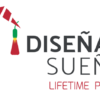Considering the misconduct of some humanitarian organisations, LifeTime Projects commits itself to both honest and responsible international volunteering.
We say no to voluntourism!
The word “voluntourism” was coined to describe travel mixing international volunteering and tourisme. Its alternative and altruistic aspect is quite attractive, but the damage it can cause is often minimised. Cut off from local reality, voluntourism neglects the local culture, dignity and autonomy for the benefit of an imaginary welfare cause. Voluntourism trips are generally short-term projects; characterised by a feeble guidance and preparation framework and the lack of long-term vision. These trips may generate unsuitable attitudes due to flawed ideas, such as the victimisation the local population or the hierarchisation of the travelers culture / society (even if travelers can understandably be unaware of this and that their intentions are well rooted).
That is why LifeTime Projects fights against voluntourism by offering supervised missions, thought out to be developed over time. Most importantly, we do not make the local people dependant on the help we provide. As an international solidarity organisation, our greatest satisfaction would be to see that our support is no longer necessary!
An ethical and responsible vision of international volunteering
As LifeTime Projects thinks that volunteering can be an effective instrument for international peace through intercultural exchange, our association commits to implement an ethical and responsible vision of volunteering. This helps to preserve the dignity of the local populations, on the basis of values such as tolerance and open-mindedness, and by advocating horizontal and complementary exchanges which implies a positive and sustainable impact. The volunteer who takes on a volunteering project with LifeTime Projects is not a professional in humanitarian aid, but he must be committed to learning, giving, and receiving. All our projects are supervised by local teams that ensure the sustainability of the mission, understanding of the local needs and culture, coordination between the different actors, and the pertinence of our projects. The double-sided exchange is guaranteed by projects that we conceive together along with volunteers and teams from around the whole world.
Total immersion
According to us, it is essential to stay in a host family in order to have a better understanding of each other, total immersion gives an insight on our differences and similarities. Thus, in addition to being the actor of an international aid mission, the volunteer, will be fully living the cultural experience. In sharing the the everyday life of the locals, the volunteer will be able to observe the impact of his action on the field, and have a better understanding of what is at stake in his/her mission with LifeTime Projects.
A minimum duration for your journey
In the context of an international volunteering mission, we encourage volunteers to participate for at least one month, we estimate that it is the span of time necessary to build an appropriate project with a sustainable impact. For that reason, we do not organise volunteering projects with very young children (1 to three years old) for a duration of any less than 4 months in order to preserve the emotional and psychological stability of the children.
Follow-up and support with a qualified team on the field
In every country where LifeTime Projects operates, project organisation is ensured by a qualified local team. They are in charge of setting up and monitoring the projects of each volunteer, so that they are fully in line with the local needs. Thanks to this permanent presence on the ground, LifeTime Projects can adjust its missions to local circumstances and therefore provide an adapted assistance to the locals and the volunteers.
Partnerships based on mutual trust and proximity
The relation of mutual trust that we have with all the actors of our volunteering projects (the host families as well as the local teams on-site) is particularly developed and especially so in the care centers for children. The main goal long term goal is to ensure the children’s family and social reintegration. The money paid by the volunteers is used to set up and develop sustainable projects in order to support the personal development, well being and social integration of the children.
A participatory approach
Every mission is conceived in a participatory way between the volunteer, the local partner, and the on-site LifeTime Projects team. This approach guarantees the quality of the international volunteering mission, and the match of volunteer activities to the local needs. We take great care that the volunteers knowledge, talents and experience be put to use in a suitable project. With this aim in mind, the volunteer’s preparation is an essential step in the construction of his/her mission. It starts as soon as possible before his/her departure (an average of 5 months before) and it consists in training and meeting with our teams in France or abroad (via Skype for example). In doing so, the volunteer has a better understanding of our projects, can define specific objectives for his/her mission, and this facilitates his/her rapid integration upon arrival. All our projects are carried out by a local team that know the local culture and needs perfectly and in collaboration with professionals in the relevant field (psychologists, social workers, teachers,…). We keep watch over the well-being of the beneficiaries and volunteers at all times.
Full Transparency
To ensure that all volunteers know the scope of their action, we show the overall process in our financial activities. Because a paying volunteering ensures the independence of our organisation: we do not receive any funding to develop our volunteering projects, and we also benefit from more flexibility. In addition to becoming a member of our charity and being a sponsor, every volunteer is an actor of our international projects and will have a sustainable impact. This concept of donator/actor gives the volunteer the advantage of being able to measure concretely his/her involvement and to see where his/ her money goes!




